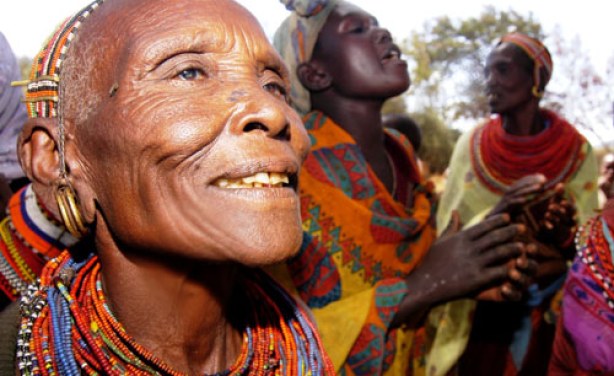-
Africa: Selling Carbon Credits From Africa - Is it Indigenous People vs Carbon Offset Schemes?
allAfrica, 14 June 2023
An international non-governmental organisation which campaigns for the rights of indigenous peoples who use traditional methods of making their living is challenging the way in… Read more »
Carbon Credits - Is it Indigenous People vs Offset Schemes?
An international non-governmental organisation which campaigns for the rights of indigenous peoples who use traditional methods of making their living is challenging the way in which a project designed to combat climate change is being implemented across vast tracts of northern Kenya.
The challenge by the London-based campaign group, Survival International, is just the latest development in renewed focus by rights groups on the way in which the rights of indigenous peoples in Africa are impacted by schemes to combat the rising global temperatures which are fuelling destructive climate crisis.
Carbon dioxide is the most important of the greenhouse gases which prevent heat from the earth from rising into space, instead causing temperatures to increase and generating global warming. Carbon offset schemes are designed to enable the producers of carbon dioxide, typically in industrialised countries, to compensate for their excess emissions by "buying" credits from those who reduce their emissions.
While there is still much work to be done to address the challenges faced by indigenous peoples in Africa, there is a growing recognition of their rights, and some positive steps have been taken at both the national and regional levels.
Documents
-
24 March 2023
Three Key Omissions, Ten Lies and Misrepresentations in NRT's Statement
- Author:
- Survival International
- Publisher:
- Survival International
- Publication Date:
NRT's response fails to address most of the key concerns raised in Survivals' report. In particular, it does not address our view that the project ... see more »
-
23 March 2023
NRT's Statement Regarding the Survival International Report
- Author:
- Northern Rangelands Trust
- Publisher:
- Northern Rangelands Trust
- Publication Date:
NRT is aware of a recent report by Survival International expressing concerns about the Northern Kenya Rangelands Carbon Project. Our response to the ... see more »
Documents
-
16 March 2023
Blood Carbon - How a Carbon Offset Scheme Makes Millions From Indigenous Land in Northern Kenya
- Author:
- Simon Counsell
- Publisher:
- Simon Counsell
- Publication Date:
The Northern Rangelands Trust (NRT) claims that its Northern Kenya Grassland Carbon Project (NKCP) is "the world's largest soil carbon removal project ... see more »
Video
-
16 March 2023
"NRT is Doing The Wrong Thing That I Find Unjust To Our People"
- Author:
- Survival International
- Publisher:
- Survival International
- Publication Date:
A leader of the Borana #Indigenous people from Kenya, describes the devastating impact that the Northern Rangelands Trust's (NRT) so-called "community ... see more »
Documents
-
7 June 2022
Due Diligence - Report Concerning the Report Stealth Game Published by the Oakland Institute
- Author:
- Dr. Kanyinke Sena, PhD
- Publisher:
- Dr. Kanyinke Sena, PhD
- Publication Date:
This Due Diligence Report (DDR) provides the results of a detailed research, investigation, and assessment process that follows up on specific ... see more »


